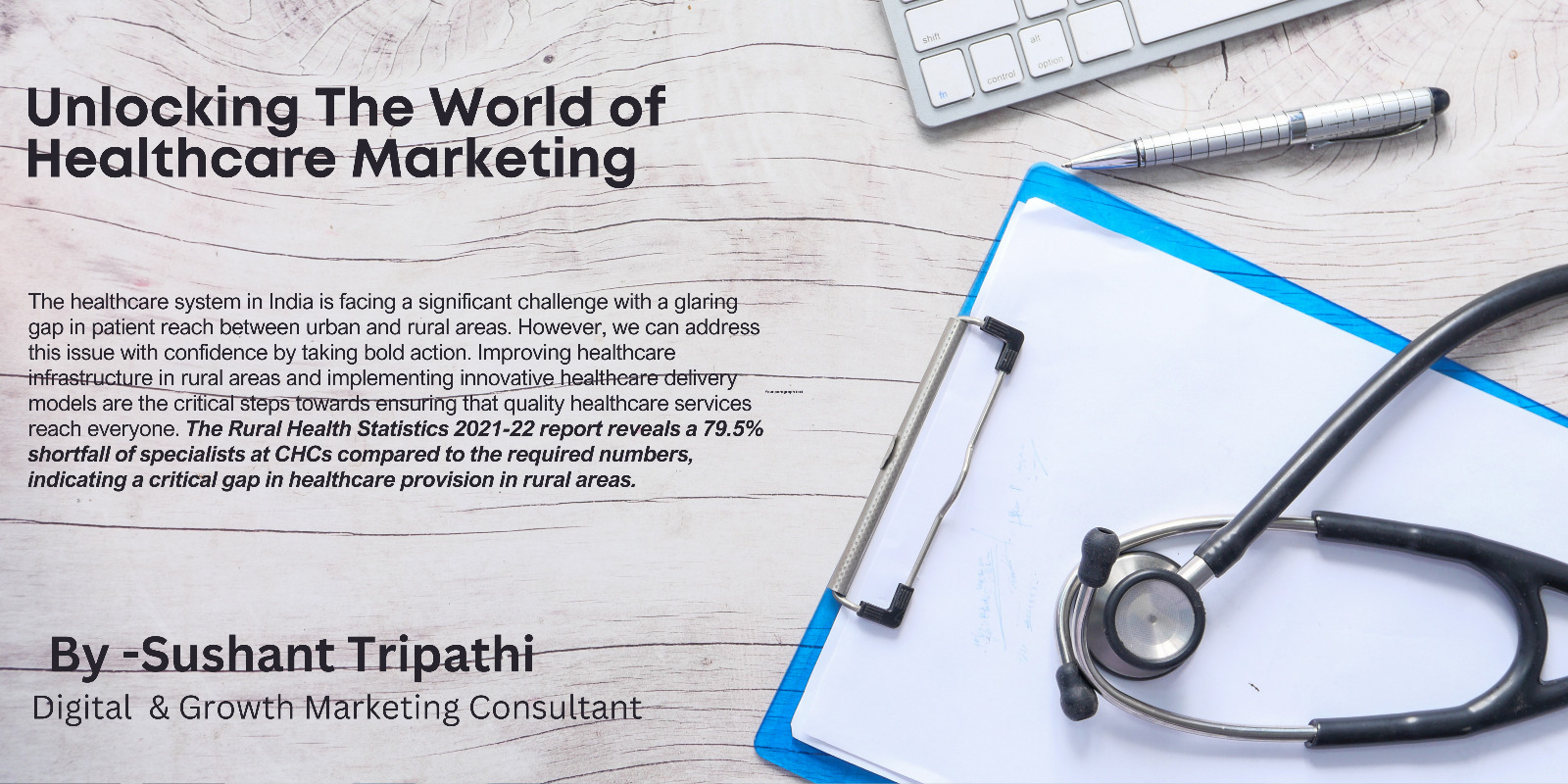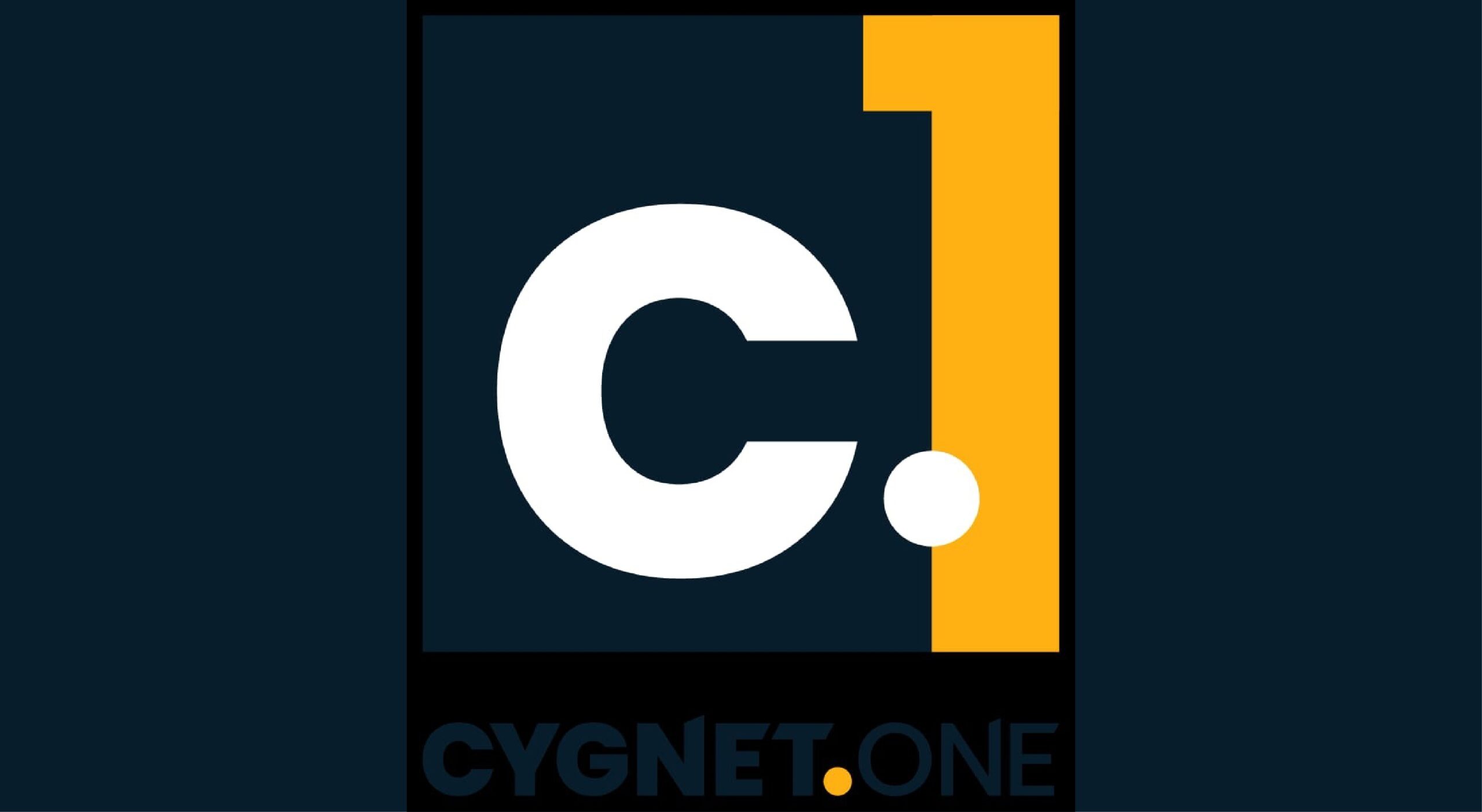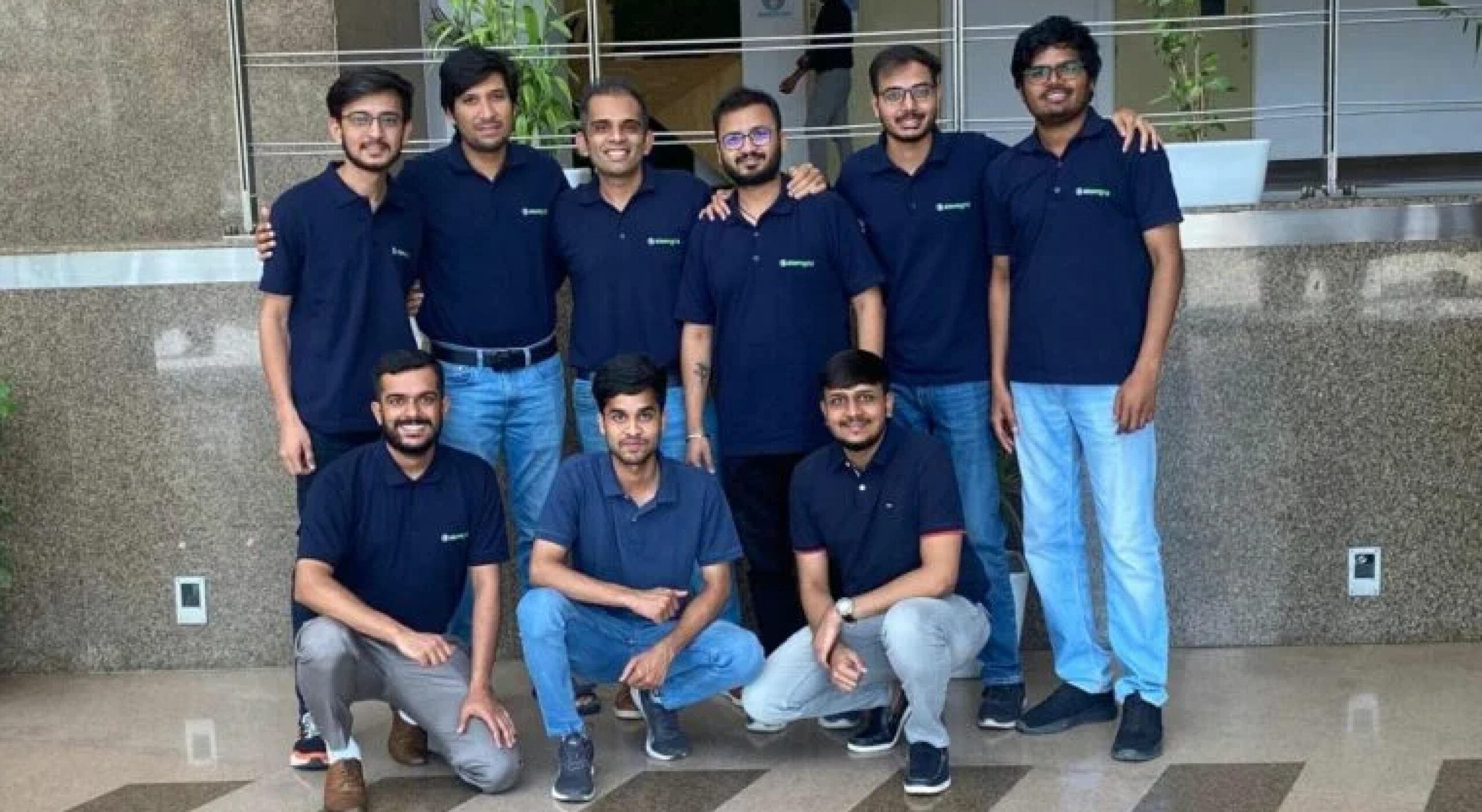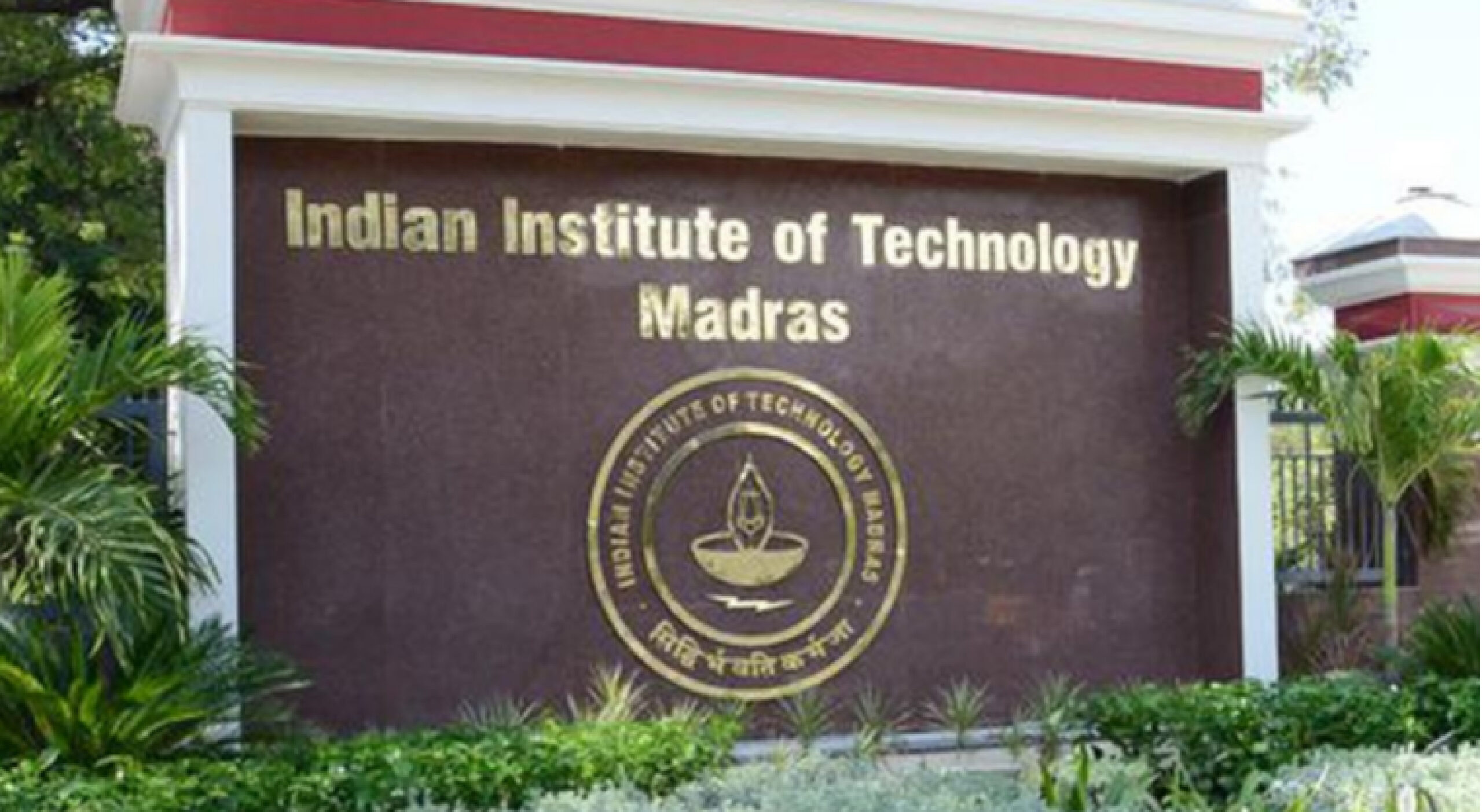Digital Transformation in Indian Healthcare: A Comprehensive Guide to Effective Marketing Strategies | Sushant Tripathi
- ByStartupStory | March 9, 2024
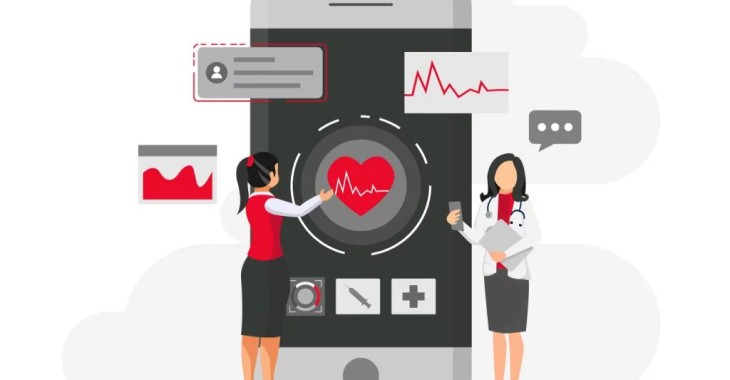
Imagine Sunita, a young mother in rural Maharashtra whose child suffers from a persistent fever. With limited access to local specialists, she turns to the internet, searching desperately for information and a qualified doctor. She discovers a well-designed hospital website offering a wealth of information on possible conditions in her search results. She can schedule a virtual consultation with a paediatrician with a few clicks, receiving swift advice and a reassuring treatment plan.
Sunita’s experience highlights the profound impact of digital marketing on the Indian healthcare landscape. As internet and smartphone access continue to surge nationwide, patients are increasingly empowered to take charge of their health journeys. Hospitals and healthcare providers are adapting, leveraging digital channels to reach patients, establish trust, and improve care delivery.
The Power of Search: Finding the Right Care at the Right Time
Search engines are often the first port of call when seeking health information. Hospitals that understand search engine optimization (SEO) ensure they surface in those critical moments. Max Hospital, for instance, saw a significant increase in organic website traffic after implementing targeted keywords and creating location-specific content. This ensures that patients like Sunita, searching for the “best paediatrician near me,” are quickly connected to the relevant specialists.
Beyond SEO, informative content is vital. Take Fortis Healthcare’s women’s health campaign. Their blog posts, webinars, and dedicated resources position them as a hospital and a reliable source of information, building trust even before a patient books an appointment.
Case Study: Max Hospital – SEO for Geo-targeting Success
Challenge: Max Hospital, a multi-speciality chain with facilities across India, wanted to increase online visibility and attract patients seeking specific treatments in various locations.
Solution: Max Hospital implemented a comprehensive SEO strategy with a focus on two key areas:
–Location-Specific Keywords: They conducted thorough keyword research, identifying high-volume search terms with geographic intent. These included terms like “best orthopaedic surgeon in Delhi,” “cancer treatment cost Mumbai,” etc.
–Informative Content Creation: Max Hospital’s content creators developed targeted landing pages for each location, focusing on specific specialities and procedures offered. The pages were optimized with relevant keywords and location tags. They also launched informative blog posts addressing common health concerns within each region.
Results: Within a year, Max Hospital saw a significant increase in organic traffic (website visitors from search engines) for location-specific keywords. This resulted in a surge in patient appointment bookings within their targeted geographical areas.
Key Takeaways: Extensive keyword research focusing on geo-targeting allows Max Hospital to attract patients searching for specific services in different locations. Additionally, creating informative content tailored to regional health concerns establishes them as a trusted resource for local communities.
-Content Marketing: Create valuable and engaging content, such as blog posts, infographics, and videos, that educate patients about health issues and your expertise. This establishes you as a thought leader and builds trust.
Case Study: Fortis Healthcare – Content Marketing for Women’s Health Awareness
Challenge: Fortis Healthcare, a leading integrated healthcare provider, aimed to position itself as a leader in women’s healthcare and attract new female patients.
Solution: Fortis launched a multi-pronged content marketing campaign focused on women’s health:
-Blog Series: They created a dedicated blog section with informative articles on various women’s health topics, including menstrual health, pregnancy care, and menopause management.
-Expert Webinars: They hosted regular webinars featuring prominent gynaecologists from Fortis who addressed common concerns and answered audience questions live.
-Social Media Content: Engaging social media posts on Facebook and Instagram provided tips for maintaining good health, highlighted success stories of women treated at Fortis, and promoted upcoming webinars.
Results: The content marketing campaign generated significant traffic to the Fortis website and social media platforms. The informative content established Fortis as a reliable source for women’s health information, while the webinars fostered trust and connection with potential patients. This strategy attracted new patients seeking specific treatments and positioned Fortis as a leader in women’s healthcare.
Key Takeaways: By creating targeted content that addresses specific patient needs and concerns, Fortis Healthcare was able to attract a new audience and establish itself as a trusted resource for women’s health.
Building Community, Fostering Trust
Social media transforms the patient-hospital relationship. It’s no longer a one-way street; patients expect interaction. Apollo Hospitals excels in this space. Their active presence on Facebook and Twitter fosters a sense of community. Patients feel heard, and the hospital’s sharing of health tips and behind-the-scenes glimpses cultivates a sense of accessibility and human-centered care. This builds trust and patient loyalty.
Case Study: Apollo Hospitals – Establishing Trust and Community through Social Media
Challenge: Apollo Hospitals, a renowned healthcare leader in India, wanted to strengthen brand recognition, build patient trust, and increase engagement with its target audience.
Solution: Apollo Hospitals adopted a multi-pronged social media strategy focusing on community building:
-Facebook: Focus on Engagement
-Informative Articles and Infographics: They regularly share health-related articles, diet tips, and visually appealing infographics.
-Health Awareness Campaigns: Launch campaigns during key health observances like World Heart Day with eye-catching visuals and informative posts.
-Live Q&A Sessions: Host Facebook Live sessions with specialists to address common concerns and increase accessibility to expert advice.
-Instagram: Creating a Visual NarrativeShort-form Videos: Reels and Stories featuring wellness tips, short exercise demos, and healthy recipe ideas.
-Behind-the-Scenes Content: Showcase hospital facilities and staff with an authentic and personal touch.
-Patient Success Stories: Share inspiring patient testimonials (with consent) focusing on recovery journeys.
LinkedIn Establishing Thought Leadership
-Industry Insights: Doctors and leaders from Apollo share thought-provoking articles and perspectives on healthcare trends.
-Conference Participation: Highlight participation in medical conferences and research contributions.
-Recruitment: Leverage LinkedIn to attract top medical talent.
-Twitter: Staying on Top of Healthcare Trends
-Real-time Updates: Provide prompt updates on medical breakthroughs, relevant news, and hospital announcements.
-Community Engagement: Participate in industry conversations and constructively respond to mentions and comments.
Results: Apollo Hospitals has created a thriving online community across social media platforms. The engaging content, expert interactions, and glimpses into human-centered care have fostered a strong sense of trust and connection with their audience. This has led to increased inquiries for treatment, a growing patient base, and a reputation as a leader in healthcare.
Key Takeaways: Apollo Hospitals demonstrates a nuanced strategy:
-Platform-Specific Content: Utilizing each social platform’s strengths to create tailored content.
-Focus on Community Building: Cultivating a sense of belonging and establishing Apollo as a reliable healthcare partner.
-Consistent Engagement: Regular interaction builds brand loyalty and patient satisfaction.
From Awareness to Action
Influencer Marketing: Partner with healthcare professionals, relevant bloggers, or celebrities with a solid social media presence to promote your services and reach a wider audience. Ensure the influencer aligns with your brand values and target demographic.
Case Study: Pristyn Care – Influencer Partnership for Procedure Awareness
Challenge: Pristyn Care, a multi-speciality healthcare provider specializing in minimally invasive surgical procedures, wanted to raise awareness about their benefits and reach a broader patient base.
Solution: Pristyn Care strategically partnered with fitness influencers and health bloggers with dedicated audiences interested in wellness and health optimization:
-Experience-Based Content: Influencers underwent minimally invasive procedures offered by Pristyncare and shared their experiences and recovery journeys through social media posts, videos, and testimonials.
-Addressing Concerns: In collaboration with Pristyn Care doctors, influencers addressed common concerns and questions about specific procedures through live Q&A sessions and blog content.
-Visual Demonstration: Short videos of the procedure and post-operative recovery helped break down misconceptions associated with surgeries.
Results: The influencer campaign generated significant buzz regarding Pristyn Care’s minimally invasive procedures. The authentic representation of the procedure experience by relatable influencers increased awareness, reduced patient anxiety, and generated leads for the hospital.
Key Takeaways: Pristyn Care’s campaign demonstrates several vital factors for effective healthcare influencer marketing:
-Authenticity and Transparency: Partnering with influencers who genuinely believe in the benefits of the procedures.
-Focused Targeting: Choosing influencers with an audience interested in wellness and health optimization, aligning with their target demographic.
-Addressing Patient Concerns: Using content to answer common questions and dispel myths, increasing trust and acceptance of the procedures.
-Paid Advertising (Google & Meta Ads):
Utilize paid advertising platforms, such as Google Ads and Facebook/Instagram Ads, to target specific demographics and geographic locations with relevant healthcare ads. This allows you to reach patients actively searching for particular treatments or specialists.
Case Study: Yashoda Hospitals – Targeted Lead Generation through Paid Ads
Challenge: Yashoda Hospitals, a leading provider of advanced medical care in Hyderabad, wanted to increase appointments for specific procedures, such as laparoscopic surgery and interventional cardiology.
Solution: Yashoda Hospitals implemented a targeted paid advertising campaign across Google and Meta platforms, focusing on these critical elements:
-Long-tail Keywords (Google Ads): Bidding on particular keywords like “laparoscopic cholecystectomy cost Hyderabad” or “best cardiologist for stent placement Hyderabad.”
-Demographic and Interest Targeting (Meta Ads): Ads are targeted to Hyderabad users interested in healthcare, medical research, or related topics.
-Dedicated Landing Pages: Designing specific landing pages focused on each procedure, with clear descriptions, benefits, and a strong call-to-action for appointment booking.
Results: The campaign significantly increased qualified leads (potential patients) for the targeted procedures. Long-tail keywords and precise targeting ensured they reached users actively researching treatment options, improving conversion rates.
Key Takeaways: Highly Targeted Approach: Yashoda Hospital’s strategy effectively utilizes ad platforms to reach the right audience. Focus on Intent: Using long-tail keywords captures potential patients already in the decision-making stage. Landing Page Optimization: Ensures a seamless user experience and facilitates lead conversions.
Case Study: Care Hospitals – Nurturing Patient Relationships with Email
Challenge: Care Hospitals wanted to enhance patient engagement, retain existing patients, and encourage follow-up care.
Solution: Care Hospitals implemented a targeted email marketing approach driven by segmentation:
-Patient Segmentation: Patients were segmented based on past treatments, demographics, and conditions. Example: Patients who received cardiology treatment were placed in a dedicated segment.
-Personalized Content: Care Hospitals developed tailored email campaigns for each segment. Cardiology patients received emails with follow-up information, heart-healthy tips, and special offers for preventive checkups.
-Lead Nurturing: To build trust with potential leads (website visitors who signed up for the newsletter), they sent automated email sequences with informative health content and testimonials.
Results: The email marketing strategy increased patient retention. Due to personalized communication, follow-up appointment bookings and preventive checkup inquiries significantly rose. It established Care Hospitals as a provider invested in the long-term health of its patients.
Key Takeaways: Segmentation is Key: Tailored content based on patient needs and treatment history increases engagement. Nurturing for Conversion: Gradual lead nurturing helps convert website visitors and newsletter subscribers into patients. Demand Generation Implement lead nurturing strategies to convert potential patients into paying customers. This includes providing valuable content based on their interests, answering questions promptly, offering free consultations, and personalizing their journey.
Case Study: Nova Fertility – Closing the Lead Gap
Challenge: Nova Fertility, a leading fertility clinic, received ample website traffic and inquiries but needed help to convert those leads into patients.
Solution: They implemented a multi-channel demand generation strategy:
-Informative Webinars: Hosting educational webinars on various fertility topics led by their specialists.
-Downloadable Resources: Providing informative guides on conception and treatment options in exchange for contact information.
-Personalized Follow-ups: Email sequences and phone outreach address specific concerns and offer consultations.
Results: Nova Fertility saw a significant increase in its lead-to-patient conversion rate. The webinars and resources helped establish its expertise, while personalized follow-ups nurtured potential patients and addressed their anxieties.
Key Takeaways: Lead Nurturing: Continuous engagement through valuable content and personalized communication is crucial. Multiple Touchpoints: Various channels (webinars, downloadable guides, etc.) cater to different audience preferences.
Additional Considerations
-Reputation Management: Actively monitor online reviews on your website and third-party sites. Address negative feedback professionally and showcase positive reviews.
-Chatbots: Integrate AI-powered chatbots on your website to provide instant support and answer common patient FAQs 24/7.
-Healthcare Apps: Consider developing an app for appointment booking, medication reminders, access to medical records, and telemedicine integration.
-Compliance: Ensure all digital marketing strategies adhere to healthcare regulations and privacy laws (HIPAA in other countries, etc.).
Conclusion:
The Indian healthcare industry is undergoing a transformative shift towards digitalization. Hospitals can solidify their online presence by leveraging a well-planned combination of search engine optimization, content marketing, social media engagement, targeted advertising, and nurturing strategies.
Success in healthcare marketing hinges on understanding the unique needs of the Indian patient. This includes addressing concerns with empathy, providing culturally sensitive information, and utilizing regional languages where appropriate. Healthcare providers must stay abreast of emerging digital marketing trends and technologies to continuously improve their outreach, patient engagement, and overall brand reputation.
Healthcare providers who invest in comprehensive digital marketing strategies will attract new patients and strengthen relationships with existing ones. They will also lay a strong foundation for success in the rapidly evolving digital landscape of Indian healthcare.
Author:- Sushant is a Growth Marketing Specialist with 12.5 years experience in Paid ,Owned and Earned Media. He has worked dedicatedly 6 years Healthcare Marketing and is known for Funnel Optimization to increase the Conversion.
Consult Him Now On Topmate . Click here
